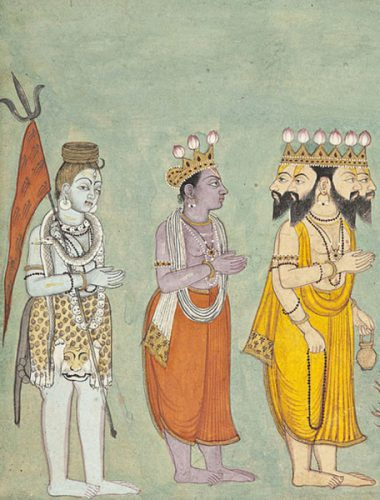What is ‘Vedic’? Pt. 5: The Srimad-Bhagavatam
- Jean Michel
- May 11, 2022
- 3 min read
The ‘Vedic Nights’ film is based on the teachings found in the Srimad-Bhagavatam, classified as one of the Puranas, which are much ‘younger’ Vedic texts. ‘Vedic Nights’ is the very first live-action film in English to dramatize material from this ancient text, and one of the first fiction films to be based directly on the Vedas outside of India.
The text is 12 Cantos, or book-length sections, and each canto is subdivided into titled chapters. Overall, there are 18,000 verses.
The translation was the life’s masterpiece of A.C. Bhaktivedanta Swami Prabupada, who published it canto by canto in the 1960s. Each verse is accompanied by a purport, which is a guided explanation that helps explain the meaning behind the verse. On average, a verse is about as long as this paragraph, and some purports can be as long as one or two pages.
The narration is told as stories within stories - sages asking their gurus metaphysical and historical questions. This storytelling technique simulates the oral passing down of knowledge from guru to disciple.
The thematic core that separates the Srimad-Bhagavatam from the other Vedas is its veneration and documentation of the pastimes of Krishna, who was the 23rd avatar of the Supreme Source, each time arriving on earth with a unique purpose. Put simply, Krishna was the 23rd time God descended to earth in a mortal body.
While the text revolves around the events during of Krishna’s life, there are many sections that outline, in meticulous detail, lamentations of kings with vast empires, the internal journeys of world-denying monks meditating day and night in the forests, the lives of gods and goddesses living on higher planes of existence, and the exploits of souls who go from lifetime to lifetime reaping the benefits or setbacks or their worldly deeds.
The Srimad-Bhagavatam’s main purpose is to instruct the reader how to end this cycle of life and death. The heavenly, earthly and hellish planes are all considered to be the material world, and the only way to stop reincarnating into these worlds is by giving up fruitive actions, or actions performed with the desire to receive the fruits of those actions.
Living to receive the benefits of one’s actions is called living in the state of passion. Devoting one’s life to serving the Supreme - as embodied by Krishna - and giving up fruitive actions, one enters the state of goodness. When actions are done to serve God instead of receiving the fruitive benefits, one gradually burns off the impurities on one’s soul garnered by many lives in the material worlds.
The system that helps a person achieve this elevated spiritual goal is called bhakti yoga, or devotional yoga. The Srimad-Bhagavatam is dedicated to instructing the devotee on the philosophical principles of bhakti and the evolution of one’s soul from its creation to its ultimate re-union with its Creator.

The question is how many lifetimes will be needed for the soul to understand and pursue this higher purpose, and the Srimad-Bhagavatam is the ultimate guidebook for a serious student intending to pursue a life of spiritual evolution.
The narrative structure of ‘Vedic Nights’ was derived from Canto 5 chapters 7-9, about the hermit-sage Jada Bharata and his passing from body to body searching for the meaning of life. It is a one small microcosm of the extensive means by which the Srimad-Bhagavatam describes how and why souls incarnate into bodies, and that devoting one’s effort to transcending this process constitutes a successful human life.














Comments